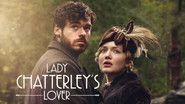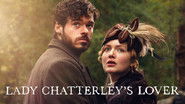hammondjemma
I knew very little of what Lady Chatterley's Lover was about before watching this adaptation of the 1928 novel of the same name, due to the fact that I don't really read classics, until I saw the trailer for it one day on BBC One. After I saw the trailer a few times, I knew that I wanted to watch it and then, after viewing it, possibly get around to reading the novel. Now that I have seen the TV Film, I know that I am definitely going to finish the novel at some point in the near future.The on-screen chemistry between Lady Chatterley & Mellors, portrayed by Holliday Grainger and Richard Madden respectively, had me hooked from their very first meeting. I found myself willing them to be together and was almost brought to tears on numerous occasions in the last 40 or so minutes of the show.Having already seen Madden as the self-proclaimed "King of the North" Robb Stark in the current HBO adaptation of George R. R. Martin's Game of Thrones I had an idea of how I felt regarding his acting and let me say, he does not disappoint. His portrayal of gamekeeper Oliver Mellors was, to me, simply astounding.I am relatively new to the acting of both Grainger and Norton, having only fleetingly seen them as small roles in other TV shows. But boy did they impress me. While Norton was given the task of playing the wheelchair-bound Sir Clifford Chatterley which, in my eyes, could not have been the easiest of roles for an actor to play, Grainger was given the role of Lady Constance "Connie" Chatterley. Grainger plays Lady Chatterley so very well. She is a character that you'll just love to hate.I understand how film critics may be a little disappointed with this adaptation, if they have previously read the novel, as I quite often compare a film adaptation with its book counterpart but, as someone who went into watching this adaptation completely blind from knowing any previous history of it, I thoroughly enjoyed it and would definitely watch it again.
l_rawjalaurence
Compared to earlier versions of the Lawrence novel on film and television - for example, Ken Russell's 1993 television version or Sylvia Kristel's porno-fest (1981) directed by her then-husband Just Jaeckin, Jed Mercurio's telefilm is relatively chaste in terms of sexual content. We see Mellors (Richard Madden) and Connie (Holliday Grainger) making love, but it is tastefully filmed by the fire in Mellors' shack, using lighting strongly reminiscent of Russell's WOMEN IN LOVE (1969).Director Mercurio seems far more interested in exploring the consequences of class-difference in a highly stratified society. Clifford Chatterley (James Norton) views his mine-workers and servants as sub-humans, whose sole function consists of serving the rich. In one sequence he sits in his motor-cycle and sidecar and lets Mellors push him out of a rut, even though this proves injurious to Mellors' health. He treats Ivy Bolton (Jodie Comer) with equal disdain - that is, until the climactic moment when Bolton confronts her master with the news of Lady Chatterley's affair.The contrast between rich and poor could not be more stark. The film opens with a mining accident in which Ivy's husband Ted (Chris Morrison) is crushed to death by an underground fall of coal. Left with little or nothing to survive on, Ivy can only eke out an existence serving the rich. By contrast Clifford lives a life of comfortable gentility, indulging in frequent parties whose guests dance to Scott Joplin rag-times played by a servile band.It is these class-differences that inspire Mellors' resentment. The reason for his feelings is clearly explained towards the end; suffice to say that he believes that the landed gentry have little or no conception of what it is to live on the bread-line, at the beck and call of the upper classes. We might be persuaded to see his affair with Lady Chatterley as a means for him to take revenge on all the social slights he has experienced throughout his life.Yet Grainger's performance proves that this is clearly not the case. As Lady Chatterley she spends much of her time caring for her husband, even though it is a thankless task. Frustrated by her husband's impotence, she looks for love and compassion; and finds both in Mellors. She resembles a ship without a rudder; constrained by the conventions of a restrictive upper class, she longs to express herself both emotionally and sexually. Grainger proves extremely good at suggesting this frustration through small facial gestures puncturing her veneer of social respectability.To be honest, this version of LADY CHATTERLEY does not make any attempt to explore sexual feelings in any great depth, as in Lawrence's source-text. Director Mercurio sees the story as a tussle between duty and emotion, which reaches a climax at the end when the three protagonists at last confront one another.This is a thoroughly satisfying production of the Lawrence classic, marred only by some syrupy music (by Csrly Paradis) that sometimes directs our attention away from the characters' emotions.
davidgee
Friends complained that this new BBCtv adaptation was too slow and not naughty enough. They could not be more wrong. The pace was well-judged and if the novel's "John Thomas and Lady Jane" scenes were somewhat diluted, there was enough of that kind of "action" to explain why Lady C. threw caution and decorum out the window after she was captivated by the gamekeeper's rough manliness. Holliday Grainger and Richard Madden gave strong performances and both looked and felt in tune with the finely evoked post-World War One setting. James Norton brought pathos as well as rage to the role of Sir Clifford and was well-served by Jed Mercurio's screenplay which did not banish him to the sidelines once his wife started popping down to the woodshed. The script's one big flaw was to give the story a Mills & Boon ending which is not ruled out but not promised in the novel.The best-ever screen version of a D.H. Lawrence book was Ken Russell's WOMEN IN LOVE (1969), which did manage to work in the novel's intellectual element as well as the social and sexual. Christopher Miles's THE VIRGIN AND THE GYPSY (1970) was nearly as good. And so is this: beautifully photographed, with a subtle script and excellent acting; a touching tale of a love affair that crosses the class divide. I hope this weekend's reworking of THE GO-BETWEEN will be as good - and as subtle.
Irishchatter
I think it was truly unfair for Lady Constance Chatterley to cheat on Sir Clifford just because he was so physically not able to give her a child. I suppose it really did hit her hard as she always was dying to have kids. At the same time, it was really wrong. It was too bad that there was no support back then on relation to having kids with a disability or even consider adoption. By god, there is so much better changes now, it's really amazing to get the support now with therapy, counseling, etc. I felt really sorry actually for poor Clifford since he truly had lost confidence and he just was always so teary, god help him! You wouldn't blame him!I honestly think this is a sad sad story that would make you sigh a lot after watching it....





